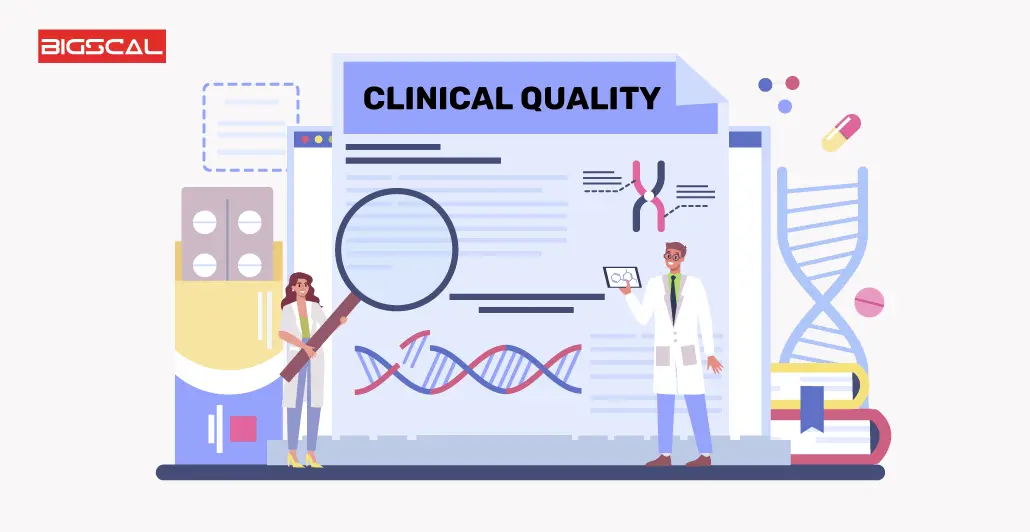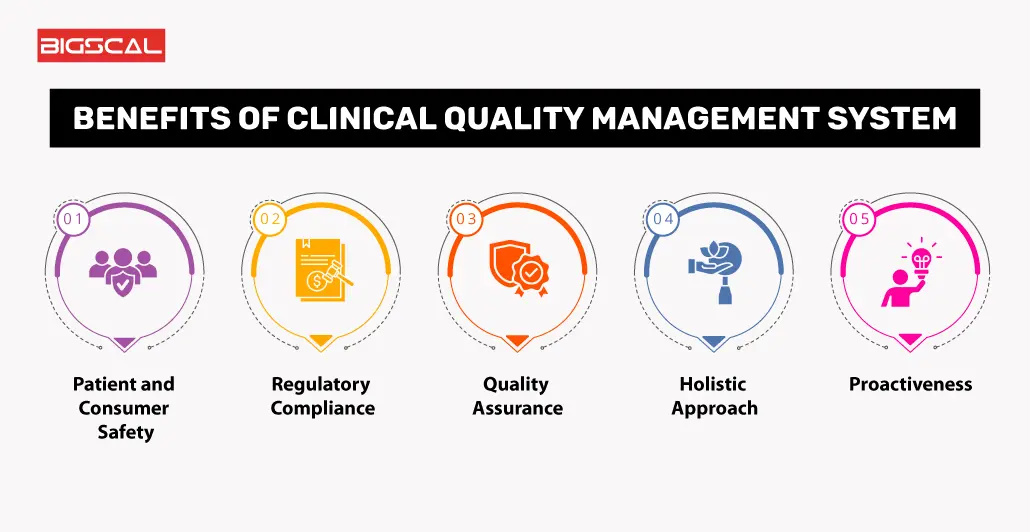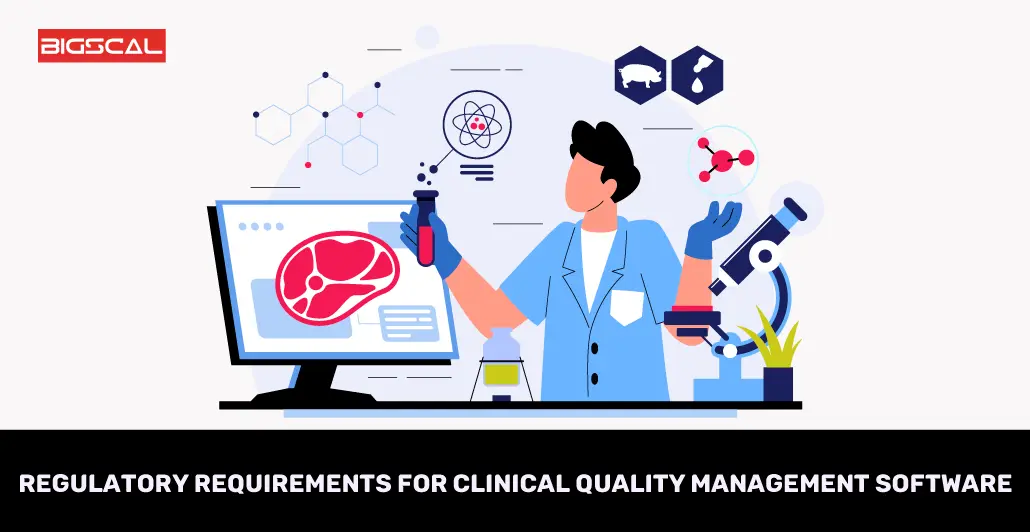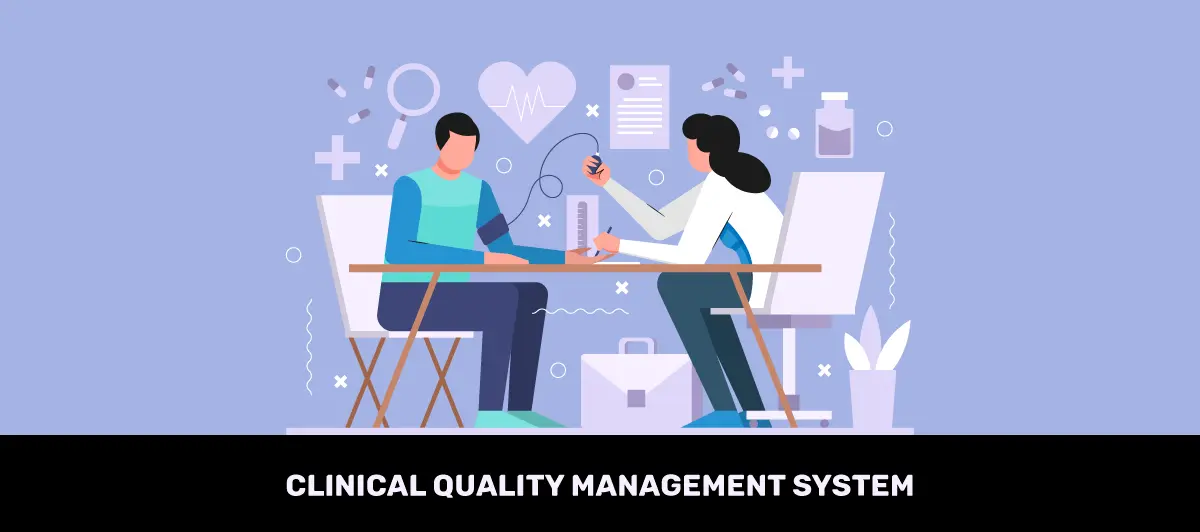What is Clinical quality management system? Definition, Benefits & More
Quick Summary: A Clinical Quality Management System (CQMS) ensures patient satisfaction and healthcare excellence through systematic processes. This guide explores its definition, benefits, and more, shedding light on how it elevates patient care and healthcare standards.
Introduction
Given that clinical research is intricate and time-sensitive, and to manage clinical investigations can take years to complete, even a small delay of a few days due to quality events will increase your expenses and give your rivals an opportunity to overtake you. You won’t give a rival CRO or sponsor such a chance if you have an efficient CQMS in place.
A clinical quality management system’s components may not have same structure, and various regulators may have different requirements. Hence putting it into practice can be difficult. As of yet, there are no comprehensive CQMS guidelines.
We’ll go over the components you need to implement a comprehensive clinical quality management system in this article. We will also emphasize the benefits of clinical QMS software solutions, which will support you in putting in place a successful clinical quality management system.
Introduction to clinical quality management system

A clinical quality management software is a system that ensures quality management especially for clinical research. By seeking the help from this software, your firm such as pharmaceutical, medical devices company, or healthcare institution can easily implement all the standard rules and regulations. Hence this can help you to meet standards and ensure that you meet all the goals of clinical development and research.
When you as an institution possess a great clinical quality management software it will be helpful in managing protocols, documents, tasks and audits. Hence it takes care of all the processes that happen during the clinical trial processes.
Using this clinical quality management system will help you in enhancing efficiency of organizational activities, ensuring risk management practices is on point, power risk mitigation and making sure you meet goals. It also helps you ensure that the new treatment procedure, drug pr stuff is safe and efficient or not.
A proficient clinical quality management systems solution in your organization is one that works on cloud. It is in integration with multiple documents with capacity to help in holistic clinic management. Hence choose a development company that is in clinic management system development for a long time.
This type of QMS solution can help in ensuring that the processes are smooth and they are compliant with international regulatory requirements. These regulations might include Good Clinical Practices, the European Medicines Agency, and the US Food and Drug Administration , and others.
What benefit does clinical quality management system provide?

A clinical quality management system is software as per your requirements to get the best benefits. Here are some of its main advantages:
Patient and consumer safety
Patient and consumer safety is taken care with the help of data that any organization, partners, regulatory authorities, and other people might employ for the betterment of the lives of patients. It can guarantee that the clinical trial participants can generate data that can contribute to advancing technology and science. Additionally, it assures the end users who go through clinical trials that they seek the best medical treatments as per the best and most accurate clinical research process.
Regulatory compliance
clinical quality management system will help you preserve and manage the quality of clinical research both universally and methodically. It will consist of everything from human trials to the studies after marketing. Hence, it also ensures compliance with all necessary rules and regulations.
Quality assurance
It is a tool that can help in avoiding quality issues that keep on recurring, like non-compliance, be it intentional or not. It may also include improper training, fewer resources, and insufficient quality control in clinical data and management. Hence, all of this can be a significant threat to the data. For more information go through this healthcare case management software blog article by Bigscal.
Holistic approach
Clinical Quality Management software will ensure that your organization can manage the quality of processes across many activities. Hence, with this, it becomes easier to attain the goals set by your organization and the clinical research you are working on.
Proactiveness
An organization that takes part in clinical research might deal with specific repetitive quality issues. Hence, with the help of an accurate quality management system, an organization can reduce and avoid errors even before they happen.
List of Regulatory requirements for clinical quality management software

ICH E6 (R2) Good Clinical Practice
The document of ICH E6 (R2) Good Clinical Practices mentions the following:
An international standard of ethical and scientific quality for planning, carrying out, documenting, and reporting clinical trials in which human subjects are involved is called Good Clinical Practice, or GCP. Adherence to this standard international ethical, assures the public that the clinical trial data are reliable and that the Declaration of Helsinki’s guiding principles safeguard trial subjects’ rights, safety, and well-being.
This ICH GCP Guideline aims to give the US, Japan, and the EU a single, unified standard that will make it easier for their respective regulatory bodies to accept clinical data from one another.
The World Health Organization (WHO), Australia, Canada, the Nordic countries, and the European Union’s and Japan’s current good clinical practices were all considered when developing the guideline.
ISO 14155:2020
Governments can translate the international quality standard ISO 14155:2020 into rules governing the administration of clinical trials for medical devices involving human subjects.
The following is a description of ISO 14155:2020:
The design, conduct, documentation, and reporting of clinical investigations involving human subjects to evaluate the clinical performance, efficacy, and safety of medical devices are covered in this document as good clinical practices.
The general requirements outlined in this document are meant to:
- Define the duties of the sponsor and principal investigator, safeguard the rights, safety, and welfare of human subjects, guarantee the clinical investigation’s scientific conduct and the integrity of its findings, and support sponsors, investigators, ethics committees, regulatory agencies, and other organizations involved in the medical device conformity assessment process.
- On the other hand, in vitro diagnostic medical devices are not covered by this document.
While there are some similarities between ICH E6 (R2) and ISO 14155:2020, the latter is more geared toward medical device companies, and the former is more focused on pharmaceutical companies.
European Medicines Agency Clinical Trials Regulation (Regulation (EU) No 536/2014)
According to Regulation (EU) No 536/2014,
Subjects’ rights, safety, dignity, and well-being should all be respected during a clinical trial, and solid, trustworthy, reliable data always should be produced. Subjects’ interests should always come first, regardless of other considerations.
In short, any organization conducting clinical research has to ensure that all clinical trials involving human subjects are designed, performed, recorded, and reported by good clinical practice. You are reassuring the public, other industry stakeholders, and the regulatory bodies by adhering to this standard.
What are core elements of clinical quality management systems?
Processes
The course of action should be precise and descriptive. Next, you must decide which of these requires procedural documentation.
The procedural records are functional. They consist of work instructions, SOPs, and policies. These documents are clear, concise, and sometimes interdisciplinary. The importance of leadership in quality lies in these documents.
The roles and responsibilities of your employees can be clear with the aid of procedural documents. Additionally, you will need to expedite staff training on these procedural documents.
Clinical quality management system offers a centralized cloud-based repository for all your SOPS, documents, and policies, significantly simplifying your duties as a Quality Assurance specialist. It makes it simple for personnel to search for and retrieve them. This is especially helpful when you must get current documents for the inspectors’ requirements during audits and inspections.
Resources, Roles and responsibilities
It would help with what tools and expertise are necessary to improve performance and meet clinical research objectives.
The availability of personnel and tangible resources, such as standards, procedures, and training facilities, will be ensured by senior leadership.
You will make clear each member’s roles and responsibilities as you move up the organizational hierarchy. All participants must also have the appropriate training, whether they are contract workers or permanent employees. Additionally, they must possess the necessary expertise to complete the tasks delegated to them. It is easily possible with clinical quality management system.
Partnering
All stakeholders in the context of clinical research must accept responsibility for their respective roles in improving quality, regardless of their partnerships.
You’ll make sure that everyone is aware of their responsibilities. It’s also important to be clear about this kind of collaboration’s risks, KPIs, and expectations.
The supplier quality management software module of SimplerQMS will assist you in automating the vendor selection procedure. The system lets you assess and qualify each vendor based on performance standards to accomplish this.
The suppliers’ list is up to date with data generated by the software. Additionally, it offers forms for maintaining records of all surveys, certifications, contracts, and supplier assessments.
Risk management
By practicing risk management, your company will consider all potential outcomes before meeting organizational and quality goals.
All organizational levels must recieve information of the importance of this kind of risk management. It must put into daily decision-making.
With the help of clinical quality management system, you can easily connect risk management documentation to your products, customers, suppliers, equipment, and components and manage your organization’s risk files. The software enables you to link risk management assignments and documents and risk control actions and design controls to lower risk throughout a product’s lifetime.
You ensure compliance will be able to obtain an accurate representation of all risks across processes and products and a clear overview of your current risk documentation. After that, you explore ways you can mitigate them by taking corrective action.
Issue management
You can improve the identification, communication, escalation, investigation, and assessment of significant issues that may impact your organization’s patient safety, data integrity, or public trust by implementing a practical issue management framework in the CQMS.
When staff members are given quality issue tasks, the QMS software solution already has issue management capabilities. It automatically notifies the staff members. The program thus makes it simple and quick for you to create CAPAs and monitor their advancement.
Using configurable dashboards, you can monitor overdue and incomplete CAPAs and evaluate quality issues by data points like products, processes, components, equipment, customers, and suppliers.
Knowledge management
A knowledge management framework is also necessary to operate a CQMS effectively.
The aim is to deliver accurate and correct information to the right people at the right time. There can be dire repercussions for both you and your patients if knowledge is lost or not put to use.
With the robust training management features of the SimplerQMS software solution, you can automate all your training tasks. Your employee records are present in it, and you can effectively manage every job, from organizing training sessions to carrying them out.
It releases notifications about the release of new training materials automatically. It generates pertinent certificates with electronic signatures after the training sessions.
Documentation supporting the achievement of quality
Since you work in clinical development, you will know that the documentation required varies depending on the activity’s importance and associated risks.
Determine how, when, and where the documentation is put before beginning any paperwork.
This software allows your company to automatically create documents in the authorized formats with all necessary approvals. It is an automated document control system. Additionally, it guarantees that staff members can only view the most recent and accurate versions. Its better to choose vet clinic management system for better documentation.
Looking to develop a clinical quality management system? Know how Bigscal can help.
At Bigscal, we prioritize precision and innovation in developing Clinical Quality Management Systems. Our approach involves a meticulous understanding of your unique healthcare environment, ensuring seamless integration and compliance with industry standards. From risk management to performance analytics, our solutions are designed to empower healthcare providers in delivering optimal patient care.
By choosing Bigscal, you’re not just getting a system; you’re gaining a strategic ally committed to enhancing clinical quality. Trust us to navigate the complexities of healthcare technology, so you can focus on what matters most – providing exceptional care. Partner with Bigscal and elevate your clinical quality management to new heights.
Conclusion
Your company will firmly reassure patients, other stakeholders, and regulatory agencies that the clinical research/clinical trial it is carrying out is of the highest caliber if it has an effective, dynamic, and flexible CQMS. It will be emphasized that the medication, therapy, immunization, or medical equipment is both effective and safe. A clinical QMS that has great organization that will also assist you in cutting expenses, time, and errors.
FAQ
What is clinical quality management?
Clinical Quality Management means a collection of processes and practices which aim at delivering healthcare services consistently of a high quality as well as corresponding to professed standards. These standards as a rule deal with patient safety, effectiveness, and general medical diagnostics results.
What is the quality management system in a clinical laboratory?
The Quality Management System (QMS) is like a management and evidence framework that endorses the convergence of all laboratory activities and processes for the effective delivery of high-quality tests and adherence to laboratory protocols.
What is a QMS in a hospital?
In a hospital, the Process Improvement System (PI) is a systematic procedure to address multiple areas to deliver high-quality effective care. In addition to that, it includes a process-oriented and structured approach to the care of patients with regards to proper implementation, assessment, and continuous lessons learned.
What is QMS in clinical trial sites?
Complementary to protocols described in clinical trials and regulatory sciences, a Quality Management System (QMS) provides for consistent compliance with regulations, reliable data integrity, impeccable standards of conduct and sincerity towards the trial process. It focuses on the monitoring of data quality and the accuracy of research in clinical research and clinical trial.
What is the meaning of clinical quality?
Clinical operations quality has to do with the extent of high quality of healthcare service effectiveness. Here the word ‘dimension’ has to be replaced by ‘aspect’; within this there are components such as patients’ outcomes, guarantees of safety, how effective the treatments are, and patient’s adherence to the guidelines, all of which show that the care is good and that patients have positive experiences.





